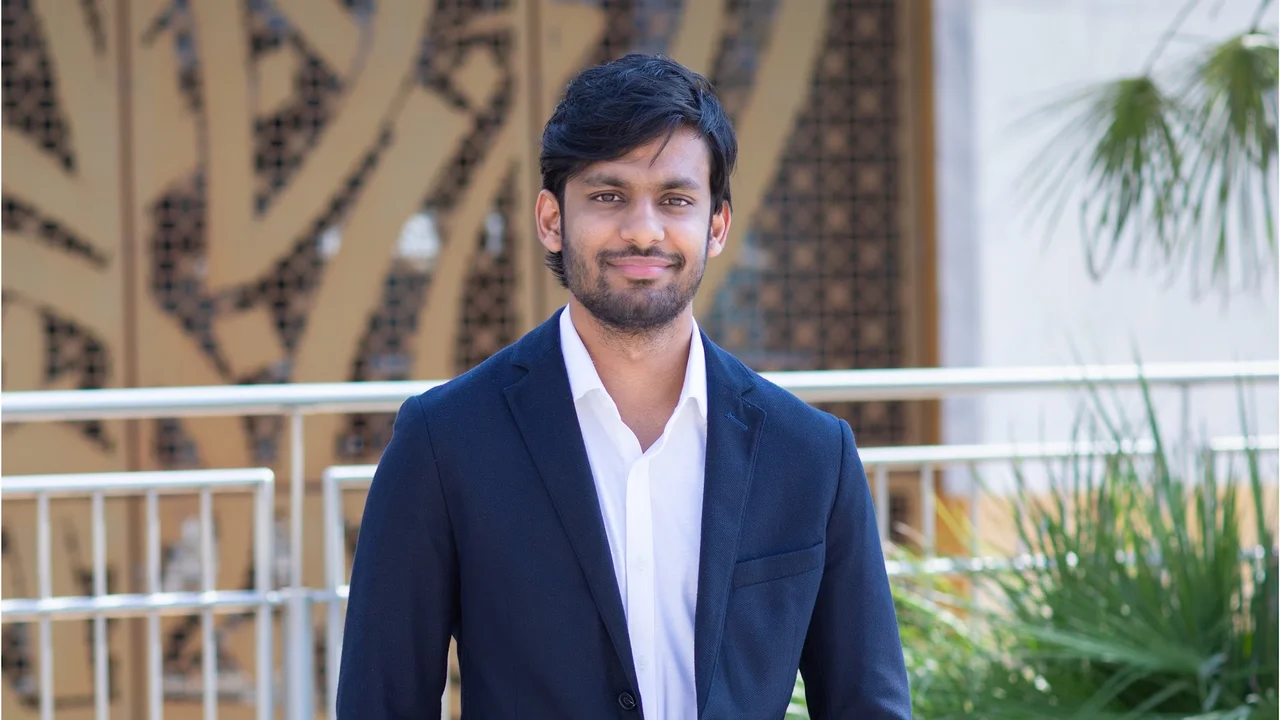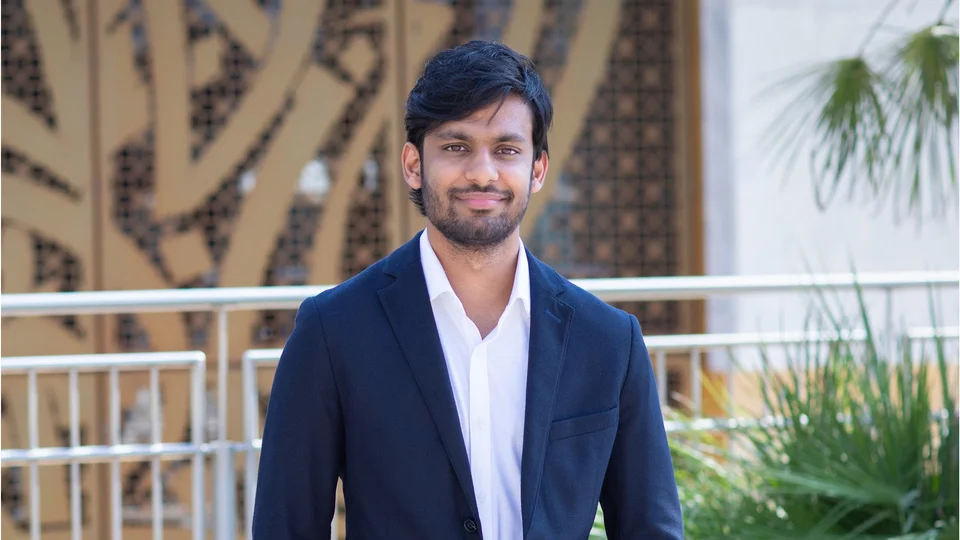
CEMSE Division student spotlight: Gaurav Agarwal
Gaurav Agarwal firmly believes in the age-old adage that patience is a virtue. Without patience, life’s challenges cannot be overcome, and a steadfast belief in perseverance has served the statistics Ph.D. student well throughout his academic career.
About
By David Murphy
Gaurav Agarwal firmly believes in the age-old adage that patience is a virtue. Without patience, life’s challenges cannot be overcome, and a steadfast belief in perseverance has served the statistics Ph.D. student well throughout his academic career.
“My challenges have varied from finding errors in my programming code to trying to prove a theorem. Usually, it simply requires patience to overcome the challenge, and I have always had the unwavering support of my supervisor to help me with my academic challenges,” Agarwal, a Ph.D. student in KAUST Associate Professor Ying Sun’s Environmental Statistics (ES) research group, noted.
“The knowledge gained from KAUST courses, and its esteemed faculty, has helped me thrive in my scientific and programming skills. I believe that my supervisor, Professor Sun, has played a major role in my time at KAUST. Her constant mentoring has shaped my Ph.D. and helped me to achieve my goals. She is an inspiration to become a better researcher and to develop my full potential.”
Since joining KAUST in the fall of 2016, the passionate statistician has continued to explore his keen interest in environmental statistics. Agarwal believes his skill set can help address pressing research questions in the fields of meteorology, biology, and air pollution.
“I always believed that statisticians can make data “talk” and that statistics has incredible potential with applications in various fields of social, biological, and environmental sciences.”
Using functional data to solve global environmental problems
Before joining KAUST, Agarwal completed a bachelor’s degree in statistics from Hindu College, Delhi, and a master’s degree in statistics from the Indian Institute of Technology, Kanpur. His current research focuses on developing robust statistical methods for multivariate, functional, and multivariate functional data to solve critical environmental problems. Agarwal believes that his work can serve as an essential tool for analyzing several aspects of non-Gaussian processes, heavy-tailed (or skewed data), which are common in real-world systems.
“My research covers a vast area — from developing advanced regression techniques for the evaluation of salinity tolerance in crops in bivariate data to developing visualization tools for bivariate functional data (by characterizing the distribution and detecting bivariate extremes with an application to climate data).”
“It also includes estimation and prediction of quantiles for multivariate functional data and construction of flexible quantile contours, applied to air pollution data, and formulation of spatial prediction problem for non-Gaussian processes,” he explained.
Exploring beneficial in-Kingdom research
The ES research group is currently working on several projects, which they believe can benefit Saudi Arabia. Agarwal and his fellow researchers have developed a robust statistical technique to examine how different barley plant traits affect yields grown in saline and nonsaline conditions, which they believe can inform future crop management in the Kingdom.
“With our technique, we examine the main influencing factors of plant groups that display higher yields and greater salt tolerance. The results so far have provided interesting insights into barley’s responses and could inform future crop decisions, particularly in arid parts of the world, like Saudi Arabia,” he explained.
“In a recent co-authored research paper, we have also developed MVApp—an open-source, online statistics platform for conducting multivariate analyzes of intricate data generated primarily by modern plant-science technologies, like the greenhouses in KAUST. I truly believe that our research can help to propel initiatives, research, and technological advancement in the Kingdom.”
“Moving forward, I plan to pursue further research in developing statistical methods for essential applications, in addition to theoretical focus, which makes me very enthusiastic about going for a postdoctoral position in statistics after my Ph.D.,” Agarwal concluded.
